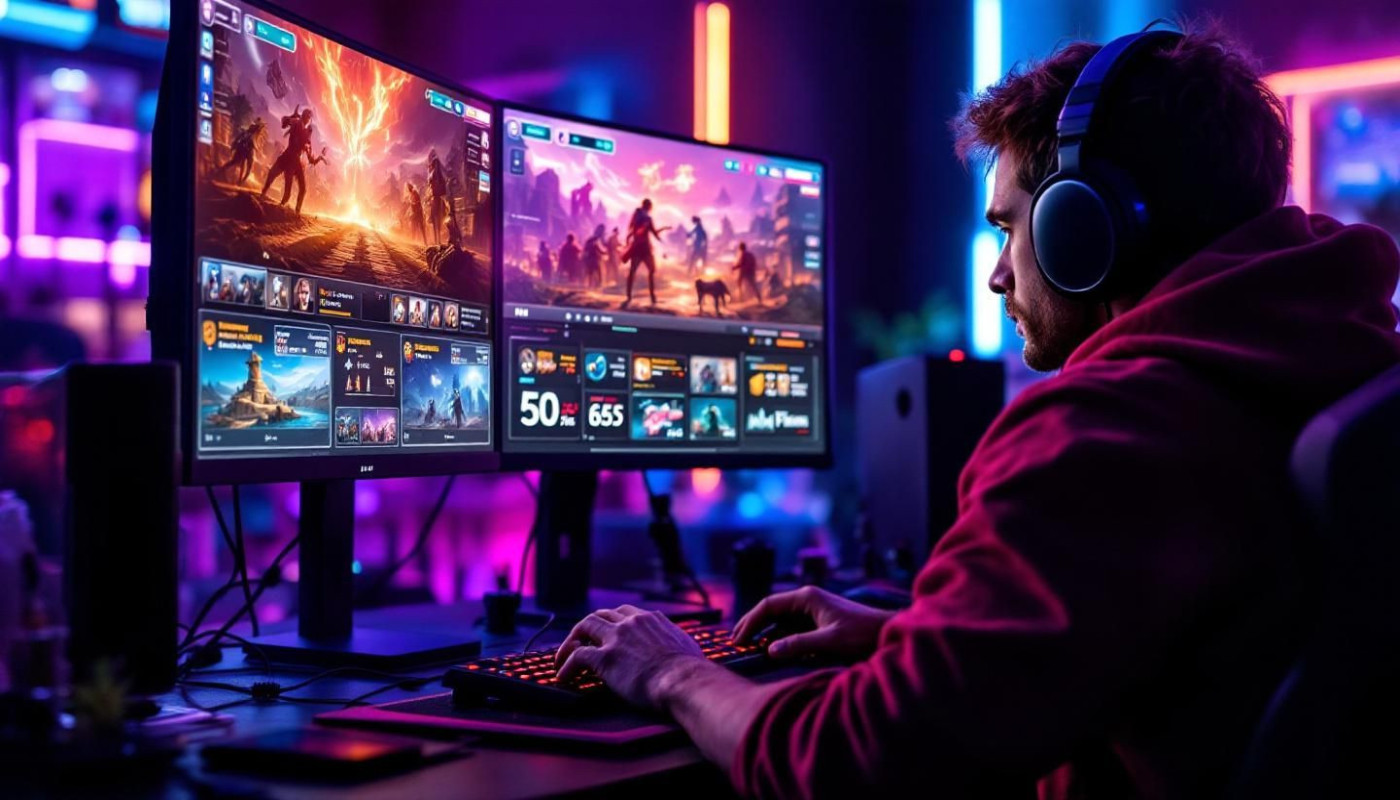Table of contents
The allure of gambling stretches across cultures and continents, drawing individuals into a world of risk, excitement, and the potential for reward. The psychology of gambling is a complex and multifaceted area of study, exploring why people gamble and what keeps them coming back, even in the face of losses. This exploration delves into the gambler's mindset, unraveling the psychological factors that contribute to this behavior. Discover the intricacies of what drives individuals to stake their fortunes on the roll of a dice or the spin of a wheel, and learn what lies beneath the surface of this captivating human activity.
The Thrill of Uncertainty
The allure of gambling is deeply intertwined with the lure of the unknown, where the unpredictable nature of gambling outcomes can produce an exhilarating rush of emotions. This thrill of gambling is, in significant part, a product of the risk-taking behavior that it encourages, as players navigate the fine line between potential reward and the peril of loss. The unpredictable victories act as intermittent reinforcement, a powerful psychological trigger, which can lead to a surge in dopamine release within the brain. Dopamine, often referred to as the 'feel-good' neurotransmitter, is a chemical that plays a crucial role in reward and pleasure systems. Its release during gambling activities further heightens the sense of excitement and can solidify behavioral reinforcement, thus potentially escalating the frequency and intensity of gambling sessions. This intricate dance with uncertainty not only captivates players but can also create a cycle that is challenging to break, as the brain continuously craves the high that comes with the next bet, the next risk, and the next unforeseen outcome.
Cognitive Distortions in Gambling
Within the sphere of gambling, a myriad of cognitive distortions can skew the perceptions and decision-making processes of players. These mental shortcuts, or heuristics, often lead individuals to believe they have greater influence over the outcomes of games of chance than is realistically the case. A familiar cognitive distortion is the 'illusion of control,' where gamblers believe their skill, knowledge, or strategy can significantly impact an inherently random event. This false perception can inflate their confidence, prompting them to continue betting under the false assumption that victory is within their grasp.
The 'gambler's fallacy' is another common mental misjudgment, wherein players assume the occurrence of a random event is due to even itself out. For example, after witnessing a long run of red on a roulette wheel, a gambler may erroneously believe that black is due to occur next, despite the odds remaining constant with each spin. Additionally, gamblers often overestimate the probability of winning, minimizing the role of chance and attributing success to personal skill or luck. Such miscalculations can result in irrational decision-making, where gamblers persist in betting, chasing losses, or increasing wagers under misguided beliefs. Recognizing and addressing these cognitive distortions is vital in mitigating their influence on betting behavior and can help prevent the descent into problematic gambling.
Social Influences and Gambling
Normative social influence plays a pivotal role in the decision-making process of individuals when it comes to gambling. It's not uncommon for the societal circles in which one operates, encompassing friends, family, and colleagues, to indirectly or directly encourage gambling behaviors. Peer pressure, a significant driver of gambling activities, can compel an individual to gamble in order to fit in or be accepted within a group. This aspect of social gambling influences often leads to individuals participating in gambling, even if it conflicts with their personal preferences or financial interests.
Moreover, the social status associated with gambling can be a powerful motivator. In certain societies and subcultures, being seen as a successful gambler can elevate an individual's social standing and provide a sense of prestige and respect among peers. This gambling for status is particularly evident in environments where big wins are celebrated and stories of success are widely shared, overshadowing the losses that are more often the reality of gambling.
The cultural acceptance of gambling also affects individuals' propensity to place bets or engage in gambling activities. In regions where gambling is seen as a harmless leisure activity, there's a diminished perception of risk, which can lead to an underestimation of the potential negative consequences. Additionally, when gambling is deeply ingrained in cultural traditions or festivities, it becomes naturalized and less stigmatized, further impacting an individual's choice to participate.
Lastly, the social component of gambling cannot be overlooked. For many, gambling establishments or gambling-centric events offer a communal space where socializing is as much a part of the experience as the act of gambling itself. This perception of gambling as a social activity can skew the perceived balance of risks and rewards, with the entertainment value and social interaction often mitigating the awareness of potential financial losses or addiction.
All these factors—peer pressure, the pursuit of social status, cultural norms, and social camaraderie—intertwine to shape the psychology of gambling, influencing individuals to varying degrees based on their susceptibility to social gambling influences and the contexts they find themselves in.
Escapism and Emotional Relief
For many individuals, the lure of gambling transcends the mere excitement of a potential win. It often represents a form of gambling escapism, a way to detach from the trials and tribulations of daily life. In this context, the act of gambling is not solely about the financial outcome but rather about the psychological respite it offers. In moments of stress relief, the gambling environment can render a temporary sanctuary from stress, anxiety, or depression.
Delving into the psychological underpinnings, gambling is sometimes utilized as a coping mechanism. It serves to mitigate negative emotions and provides a distraction from pressing concerns or difficult circumstances. This method of seeking emotional relief is typically characterized by the technical term "negative reinforcement." This term acknowledges the reduction or removal of an adverse condition – in this case, psychological discomfort – which consequently increases the likelihood of the gambling behavior being repeated.
The interplay between anxiety and gambling is particularly nuanced. The intense focus required in many forms of gambling can occupy the mind so fully that worries and fears are temporarily eclipsed by the immediate demands of the game. While this reprieve can feel soothing, it is imperative to recognize that the relief obtained is transient. In the absence of healthier coping strategies, reliance on gambling as a form of escape can spiral into a maladaptive pattern with potential long-term psychological consequences.
Understanding the Consequences
Problem gambling can lead to a myriad of detrimental outcomes, where financial hardship is often at the forefront. Those who struggle with gambling may find themselves in escalating debt, potentially leading to bankruptcy or other severe economic challenges. The ripple effect of gambling consequences can extend beyond personal finances, straining or even severing family and romantic relationships. Mental health in gambling is another critical aspect to consider, as chronic stress, anxiety, and depression frequently accompany gambling issues. Recognizing the gravity of these repercussions is paramount in fostering responsible gambling practices. Individuals are encouraged to set limits, seek professional support when needed, and maintain an awareness of the signs of problematic behavior. By remaining vigilant and informed, gamblers can enjoy the activity without succumbing to its potential pitfalls.
Similar articles

A Comprehensive Guide To Available Games At Top Online Gaming Platforms

How Risk And Reward Influence Player Decisions In Online Games

Strategies To Manage Your Budget In Online Gaming

Mobile Gaming: A Guide To Playing Casino Games On Your Smartphone

Exploring The Evolution And Innovation In Online Casino Games

Exploring The Safety And Fairness Of Online Casino Games

Exploring The Allure Of UK's Unregulated Casino Platforms

Exploring The Appeal Of Online Betting And Casino Platforms

Leveraging casino loyalty programs for maximum benefits and rewards

Mastering The Art Of Highway Crossing In Online Casino Games

Maximizing Your Winnings In Multi-level Gamble Games

Understanding casino licensing and regulation for secure online play

Effective Strategies To Maximize Winnings In Online Skill-based Games

Guide To Secure Payment And Withdrawal Methods In Online Casinos

Effective Strategies For Managing Your Budget In Online Casinos

Understanding The Safety Of Online Gambling Platforms

Exploring Cluster Slots: A Guide To Innovative Slot Features

Exploring The Excitement Of New Generation Mobile Crash Games

Exploring Trends In Canadian Online Casino Games For 2024

The Significance Of Gaming Licenses In Online Casinos

Exploring The World Of Online Casino Bonuses: A Guide To Maximizing Your Rewards

The Psychological Impact Of Penalty Shootouts In Gaming: Exploring Strategies And Player Behavior

Exploring The Financial Benefits Of Investment In Esports Teams Versus Traditional Casinos

Exploring The Rise Of Virtual Reality Casinos: The Future Of Online Gambling

Ensuring Fair Play: How Online Casinos Are Regulated To Protect Players

Exploring The Legality Of Online Casinos In Chile

Crypto Casinos: The Future of Online Gambling

Behind the Scenes: The Life of a Professional Poker Player

